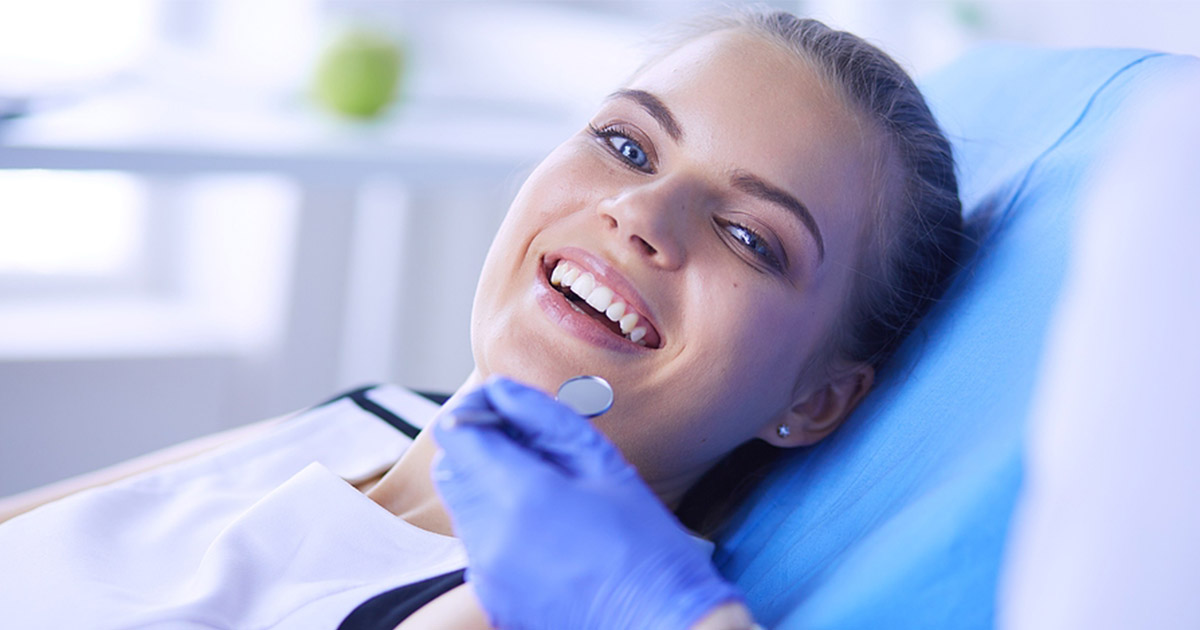Cascade Dental’s Post-Op Instructions for Dental Bridges

We’re thrilled to be a part of your journey toward a brighter, healthier smile. Now that your procedure is complete, let’s go over some essential post-op instructions to ensure a smooth and comfortable recovery.
Immediate Aftercare – The First 24 Hours
Right after leaving our office, your mouth may still be a bit numb from the local anesthesia. Be careful not to bite your cheek, lips, or tongue inadvertently. It’s normal to experience some swelling and minor discomfort during the first 24 hours, but don’t worry – this is all part of the healing process.
- Managing Discomfort: Over-the-counter pain relievers like ibuprofen or acetaminophen can help alleviate any pain or swelling.
- Adhere to the prescribed dosage mentioned on the packaging, and steer clear of aspirin, as its usage could heighten the likelihood of bleeding.
- Avoiding Hot and Spicy Foods: Stick to soft, cool, and mild foods in the first 24 hours. Ice cream, yogurt, and smoothies are excellent choices. Avoid hot and spicy foods that might irritate the surgical site.
- Oral Hygiene: Gently brush your teeth, avoiding the surgical area for the first day. You can start brushing as usual after 24 hours, but be careful when brushing around the bridge. Use a toothbrush with soft bristles to clean both your teeth and the bridge, to maintain proper oral hygiene.
Eating Right During Recovery
Your diet plays a crucial role in a speedy recovery. While you might be tempted to enjoy your favorite crunchy or chewy foods, it’s essential to stick to a soft diet during the initial stages of recovery.
- Soft Diet Recommendations: Opt for foods like mashed potatoes, soups, scrambled eggs, pasta, and steamed vegetables. Smoothies and shakes are also excellent choices to ensure you get the necessary nutrients without putting too much pressure on your new dental bridge.
- Avoid Hard and Sticky Foods: Stay away from hard candies, nuts, popcorn, and sticky treats that can potentially damage your bridge or cause discomfort. Remember, patience is key during this recovery period.
- Stay Hydrated: Drinking an ample amount of water is not just beneficial for your overall well-being, but it also supports the body’s natural healing. Make sure to stay hydrated, but avoid extremely hot or cold beverages in the initial days to prevent sensitivity.
Handling Swelling and Bruising
Following a dental procedure, it is common to experience some swelling and bruising. Here’s how you can manage it effectively:
- Cold Compress: Apply a cold compress to the affected area for 15-20 minutes to avoid swelling. You can use a clean cloth or an ice pack covered with a thin towel. Remember to take short breaks between each application.
- Elevation: Keeping your head elevated, especially while sleeping, can assist in minimizing swelling. Use an extra pillow to prop yourself up, promoting better circulation and reducing discomfort.
- Avoiding Tobacco and Alcohol: Smoking and drinking alcohol can impede the healing process and raise the chances of complications. It is advisable to avoid these substances during your recovery period.
Follow-up Appointments and Long-term Care
Now that the initial recovery period is behind you, it’s essential to stay on track with follow-up appointments and long-term care.
- Follow-up Appointments: Be sure to attend any scheduled follow-up appointments with Cascade Dental. These visits allow us to monitor your healing progress, address any concerns, and ensure that your new dental bridge is settling in perfectly.
- Maintaining Good Oral Hygiene: Maintaining good oral hygiene is crucial for the longevity of your dental bridge. It is important to brush and floss regularly and schedule routine dental check-ups. These practices greatly contribute to the durability of your dental bridge. Use a floss threader or a specialized bridge floss to clean underneath the bridge and around the supporting teeth.
- Protecting Your Investment: If you grind your teeth at night, consider using a nightguard to prevent unnecessary stress on your dental bridge. Furthermore, it is advisable to refrain from biting on solid items such as ice or pen caps, as this can gradually cause harm to the dental bridge.
- Professional Cleanings: Schedule regular professional cleanings to keep your entire oral cavity healthy. Our dental experts can offer individualized guidance on how to keep your teeth and gums healthy.
Remember, our team at Cascade Dental is here for you every step of the way. If you have any questions or concerns during your recovery, don’t hesitate to reach out. Your brand new dental bridge is an outstanding investment for your oral well-being. With proper maintenance, it will keep improving your smile for many years ahead.